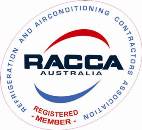Coles have managed to reduce its gas use by 30 percent despite the introduction of the carbon tax, which ultimately the major retailer used as a motivator to reduce their gas use and become more environmentally friendly.
Speaking at CCN Live 2014 last month, which focused on theme of the commercial realities of sustainability, Mark McKenzie, the Head of Maintenance, Energy and Sustainability at Coles, stated that the carbon tax pushed Coles to step up their game as they would be facing bills of $3-4 million a year.
This lead to the introduction of an extensive gas containment strategy at Coles which involved replacing kilometres of refrigeration lines, pipe replacement, gas loss figures and store-to-store gas loss rankings posted on store doors, the use of leak detectors and incorporating gas loss into key performance indicators (KPIs).
Coles National Engineering Refrigeration Manager, Stuart Saville also spoke at CCN Live 2014 and stated that there was still room for improvement, especially due to the likeliness of carbon pricing returning in some form in the future. Saville also went into detail about some of the challenges and setbacks that Coles have faced in their efforts to reduce their gas use. These challenges and setbacks have included dealing with aging and varied fleet, the different managements and footprints of each individual store and the inability to take a one-size-fits-all approach.
Coles have conducted trials with other gases and refrigerants including R32, HFO1234yz and ammonia. They found that while the ammonia plant functions well, there is a challenge of maintaining technical staff with the skills to service it when need be.
Saville stated that Coles aims to introduce the first solar store in the next year, however their next goal is to secure a Green Star rated building.
More information on Mark McKenzie’s and Stuart Saville’s presentation at CCN Live 2014 can be found here.
<< RACCA News



